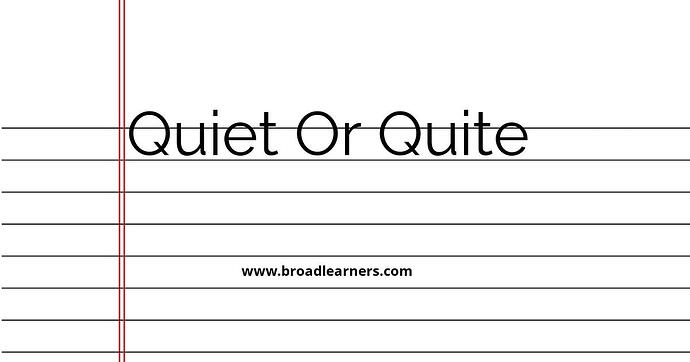'Quiet' and 'quite' are commonly confused words in English grammar. Understanding the difference between 'quiet' and 'quite' is important to use them correctly in written and spoken English.
'Quiet' is an adjective that describes a state of low or minimal noise or sound. It is used to indicate a lack of noise or a calm or peaceful atmosphere.
'Quite' is an adverb that means 'to a certain extent' or 'fairly' or 'completely'. It is used to emphasize the degree or intensity of something.
Let's take a closer look at the meanings and usage of 'quiet' and 'quite'.
| 'Quiet' | 'Quite' |
|---|---|
| The word 'quiet' is used to describe a state of low or minimal noise or sound. | The word 'quite' is an adverb that means 'to a certain extent' or 'fairly' or 'completely'. |
|
|
To remember the difference between 'quiet' and 'quite', it can be helpful to remember that 'quiet' describes a lack of noise or a calm atmosphere, while 'quite' is used to emphasize the degree or intensity of something.
Here are some examples of correct usage:
- Please keep quiet during the meeting. (indicating a lack of noise)
- He was quite surprised by the news. (emphasizing the degree of surprise)
- The restaurant was quite crowded last night. (emphasizing the level of crowd)
- I'm quite tired after a long day at work. (emphasizing the level of fatigue)
Remembering the correct usage of 'quiet' and 'quite' will improve your grammar and communication skills.
